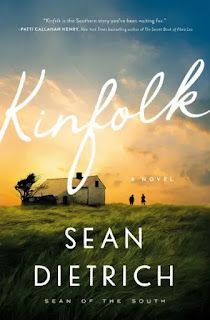 Raymond Beauchemin was born in Western Massachusetts and has lived in Boston, Montreal and Abu Dhabi. He currently lives in Hamilton, Ontario. He has worked as an editor for the Boston Herald, Montreal Gazette, The National and the Toronto Star. He is the author of Everything I Own, a novel.
Raymond Beauchemin was born in Western Massachusetts and has lived in Boston, Montreal and Abu Dhabi. He currently lives in Hamilton, Ontario. He has worked as an editor for the Boston Herald, Montreal Gazette, The National and the Toronto Star. He is the author of Everything I Own, a novel.
Beauchemin's new book is The Emptiest Quarter.
Recently I asked the author about what he was reading. Beauchemin's reply:
Like a lot of readers, I have several books or magazines or newspaper article going on at the same time. Weekly, there’s the New Yorker, for the articles and, let’s not kid ourselves, the cartoons; and theVisit Raymond Beauchemin's website and view the trailer for The Emptiest Quarter.New York Times Book Review, so I have an idea of what’s going on in the book world even if I don’t get around to most of the reviewed books.
Among the highlights of my reading this year were two books from Boston-area writers, Dennis Lehane’s Small Mercies, with a kick-ass protagonist named Mary Pat, who goes up against a Whitey Bulger-like Irish mobster in Southie while confronting her own biases during the busing crisis in Boston in 1974; and Such Kindness, by Andre Dubus III, featuring a recovering addict attempting to make connections with the people around him, or reconnections with the people he lost during his blackout phase, but most importantly getin touch with who he is as a man, friend, ex-husband, neighbor and father.
Not quite Boston, but certainly Irish, was Louise Kennedy’s Trespasses, wherein a young woman struggles to make sense of life in Troubles-era Belfast.
Right now, I’m just a few pages into Mick Herron’s Dead Lions, a sequel to Slow Horses, which has been adapted into a series on Apple TV; and Machado de Assis’s Dom Casmurro, a late 19th-century Brazilian novel I’m reading aloud to my wife (it’s a thing we love to do). In both cases, we’re dealing with a certain amount of unreliability. Herron’s characters are washed-out and washed-up British MI5agents and it’s not always clear who’s going to get hung out to dry. In Dom Casmurro, there’s the question of a love interest’s fidelity, though the issue could just as well be whether the narrator’s the one telling the tale straight. Did she or didn’t she? Does he even know? I don’t know! We haven’t finished!
Two books I read this year that I absolutely loved this year were Radio Free Vermont, by New Yorker writer Bill McKibben. A veteran radio announcer accidentally sets off a movement for an independent Vermont shortly after the 2016 U.S. federal election. There’s a laugh a page in the novel, along with some thought-provoking exposition disguised as the musings of theannouncer. And this being Vermont there’s craft brew in every chapter and a fiercely Vermont-patriotic biathlon team.
The other book was a YA graphic memoir A First Time for Everything by cartoonist Dan Santat. Dan recalls a highlights trip to Europe he took with classmates during his awkward and shy high school years. There’s angst and teasing and embarrassment and a girl, of course. A sweet, wistful book sure to strike a nerve with boys and girls of a certain age and temperament.
The Page 69 Test: The Emptiest Quarter.
--Marshal Zeringue




.jpg)


































